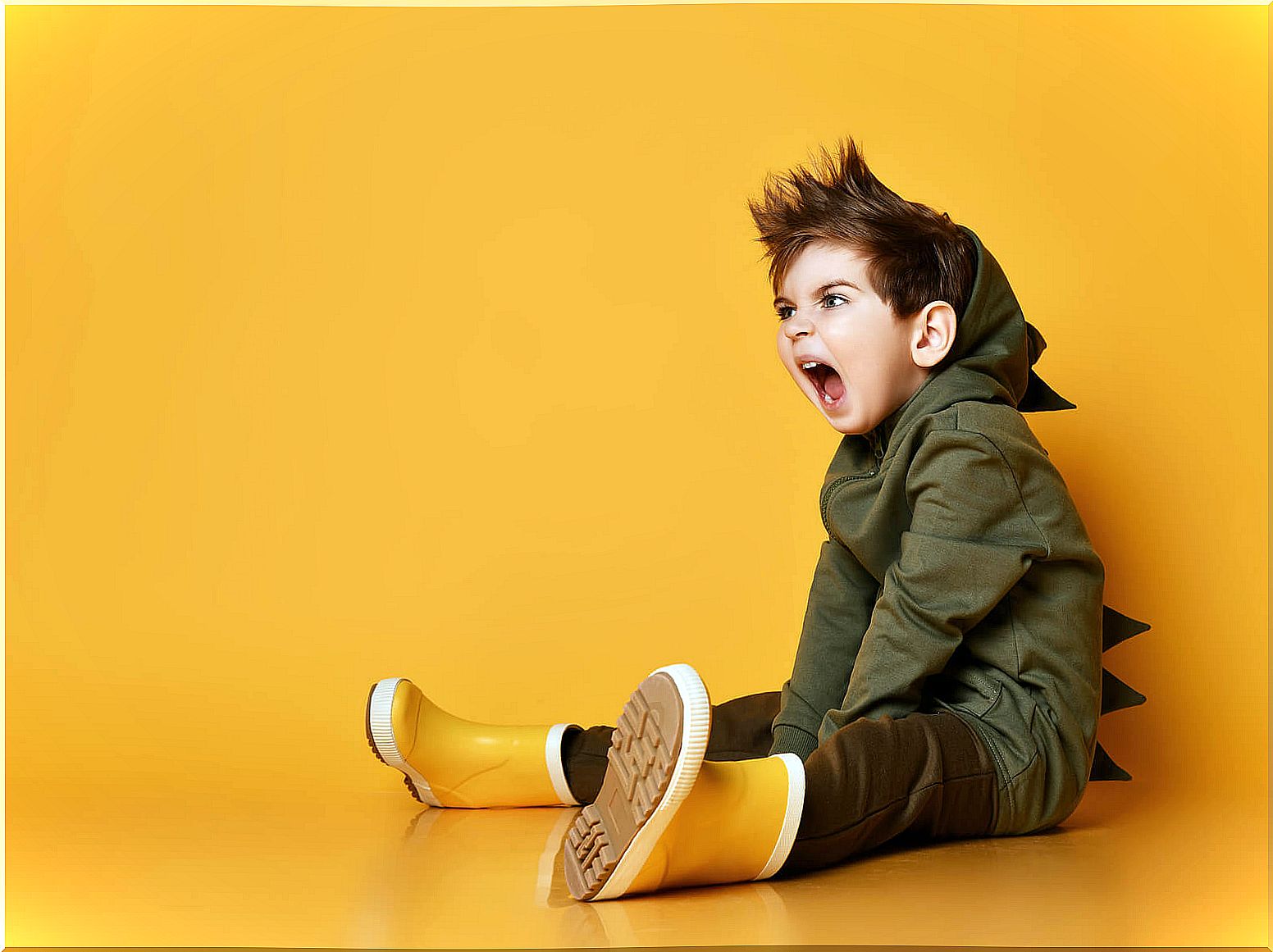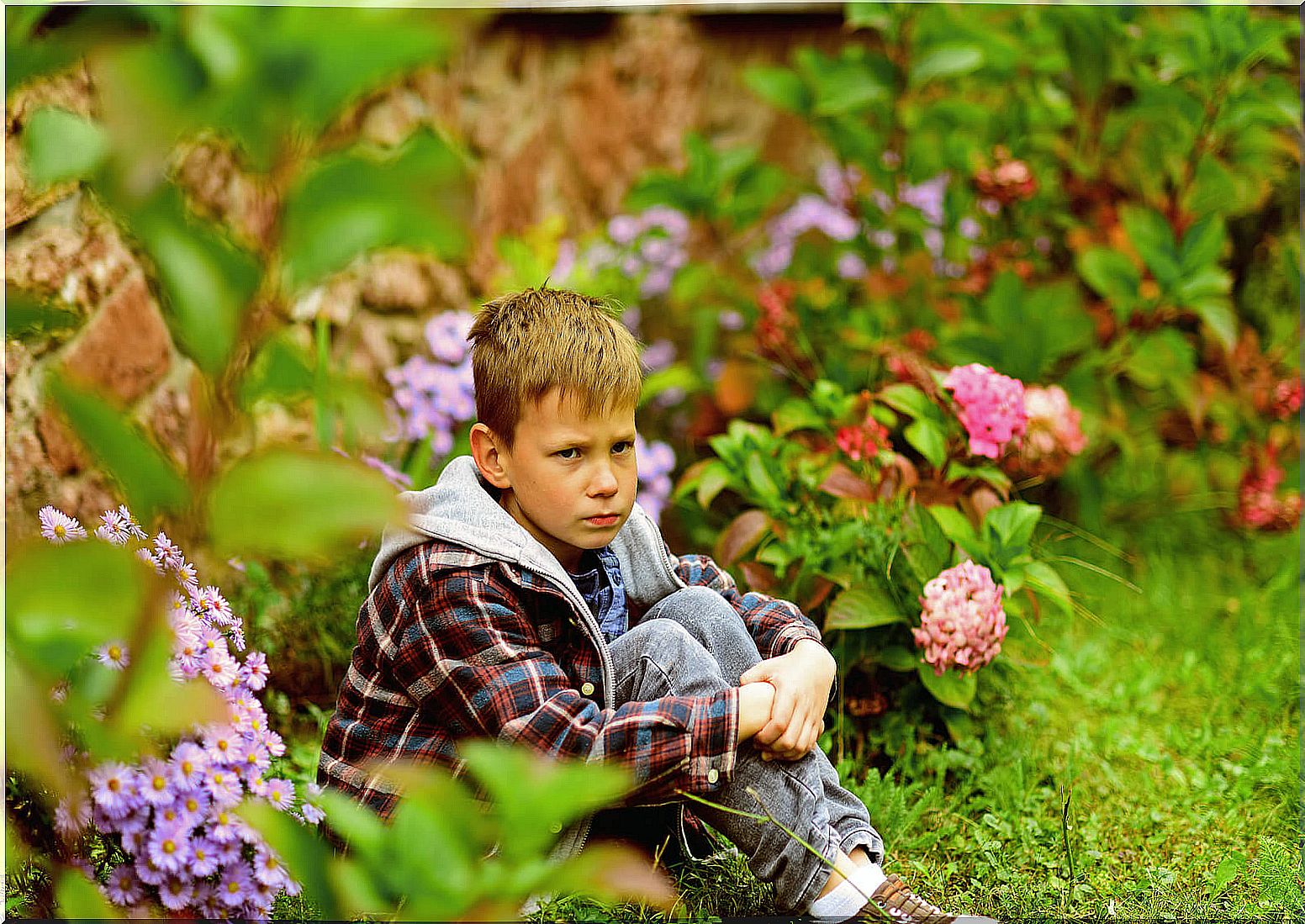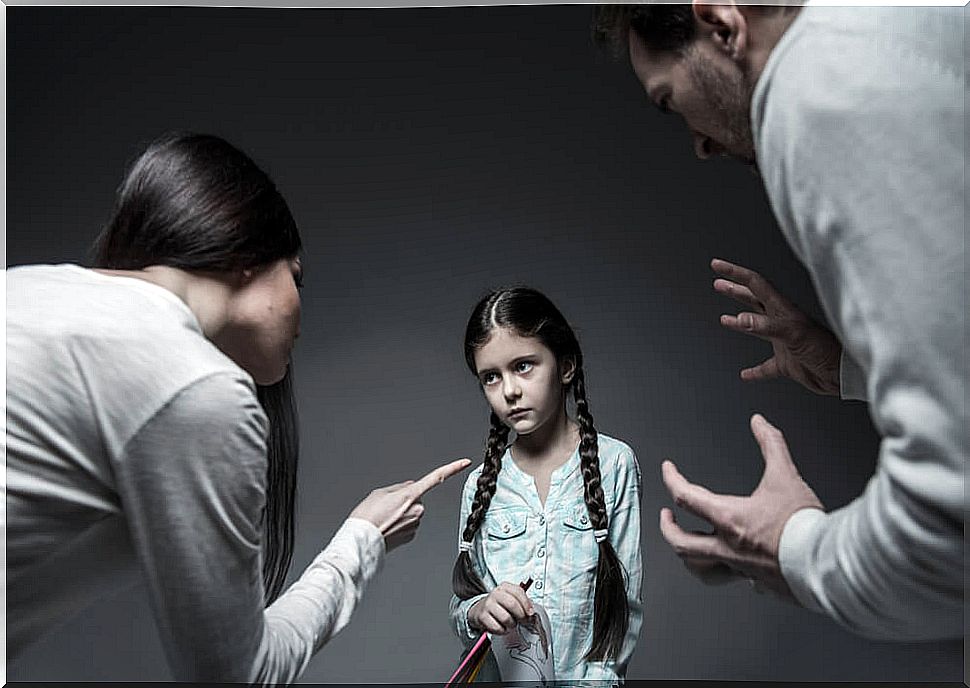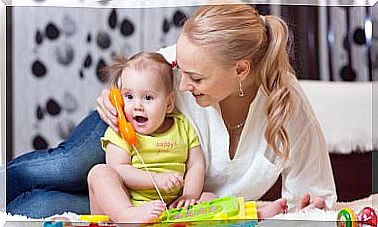How To Prevent A Child From Insulting

When a child begins to say their first words, everything seems great. In fact, by the time you’ve mastered a couple hundred words, even tacos can be hilarious. But beware, if the thing spreads too much, it could become a problem. Therefore, we want you to know how to prevent a child from insulting.
Of course, the insult does not always have to be a grace. Sometimes it is a way of expressing anger or frustration. As Carmen Marco Llana, a child psychologist, says, there are times when children, not knowing how to manage a specific situation, get frustrated and end up showing their anger disrespectfully, since they do not have enough vocabulary to express their annoyance and neither they have tools to manage the problem.

Learn to prevent a child from insulting
To prevent a child from insulting, we are going to focus on the keys provided by child psychologist Sara Tarrés. Of course, remember that these tips will have to be adapted. You can correct the child, but you will not act the same with a 2-year-old as with a 10-year-old, of course. In addition, it is also necessary to consider the personality of each infant.
Be their example
The Spanish proverb is very rich and from it we can remember a saying that says “Do what I say, not what I do” . Well, in this case, what you say will also have to go according to what you do.
Children learn by imitation, especially in the early stages of their development. If you insult, especially if you do it regularly, be clear that the little one will see it as something common, he will not understand that it is something bad or negative, so your anger, your advice or lessons to do it will fall into a sack broken.
Clear boundaries to prevent a child from insulting
The best way to establish clear and appropriate limits is to set a set of rules that are agreed upon by adults and children. Whether in the classroom or at home, it will be important that all the actors involved travel in the same boat.
Be that as it may, children will better understand the need for standards if they are aware of the importance of maintaining attitudes of respect, tolerance, and appreciation for others.
Adequate moderation
You also have to learn to moderate children’s interactions. If they insult and you react in an aggressive and virulent way, you not only set a bad example, but you also grant them enormous power, since they discover the force that certain terms have to use them when they want to piss you off.
It is important to always react firmly, but not authoritatively. Avoid the yelling and go for the explanation and, if necessary, ignore the insult for a while and, when you are calmer, act more sensibly.
Using empathy
It is common to insist on this aspect, but empathy is a basic value today. Therefore, you have to understand the child. Analyze the reason for their insults. Are you holding back your anger? Or is it a wake-up call?
The use of sanctions and punishments to prevent a child from insulting
It is necessary to use punishment in certain cases, but always knowing that it must be limited and of short duration. Once the little one realizes his mistake and corrects it, the punishment will have to be removed. However, it considers that the sanction will be in accordance with the level of the error in which the child made, never excessive, and not with a defect.

Saturation
It is an alternative and controversial method, but one that can work. With excess and saturation, the insult can end up losing its meaning, thereby disempowering the child. To make it work, stay calm while saying it and insist that he see that such a strategy does not work.
Offer alternatives
Fortunately, there are many ways for children to express their anger, frustration, and rage. Therefore, you can show them other formulas so that they do not have to resort to insults, bad manners and the use of bad words.
Surely you already know a little better how to avoid being insulted by a child. Put these keys into practice, as they will be useful for your little one to know how to channel their emotions and optimize their ability to express themselves.










